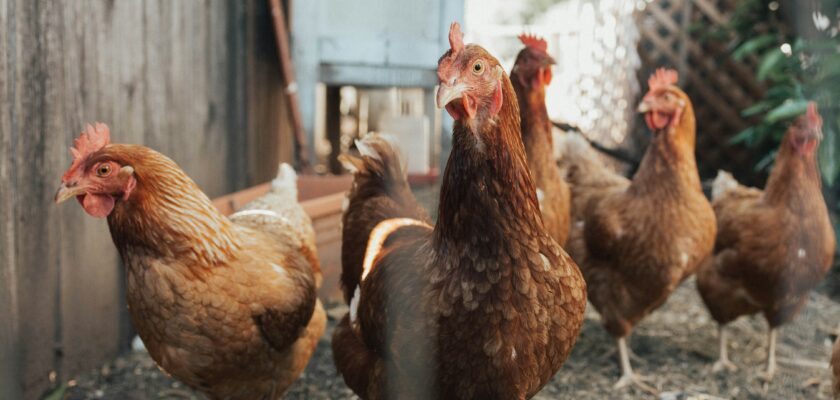Introduction
Raising chickens can be both rewarding and educational—but have you ever stopped to consider how long your feathery friends might live? The life span of a chicken varies widely depending on a variety of factors like breed, environment, and purpose. Whether you’re raising hens for eggs or meat, or keeping them as pets, understanding their lifespan is crucial for optimal care and planning.
Let’s dive into the most astonishing facts every poultry enthusiast should know!
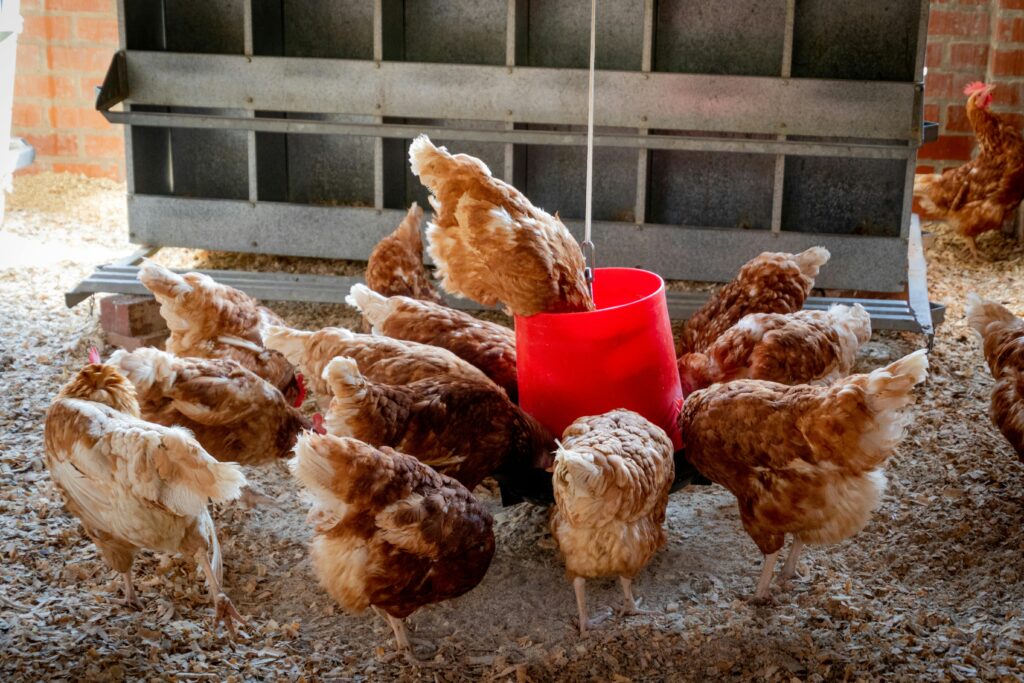
Photo by Magda Ehlers
What Is the Average Life Span of a Chicken?
Generally, the average chicken lives between 5 to 10 years, though this can fluctuate significantly. Chickens raised in backyard environments with proper care tend to outlive their commercial counterparts. Commercial laying hens, unfortunately, are often culled by 18–24 months due to declining egg productivity.
Key Takeaway:
With optimal living conditions, backyard chickens can live well beyond 7 years, and some even reach 10+ years!
Factors That Affect a Chicken’s Longevity
Let’s break down the core elements that influence how long your chicken might live.
Breed Type
Some chicken breeds are genetically predisposed to live longer. Heritage breeds like Rhode Island Reds or Orpingtons are known for their durability, while hybrids bred for production often have shorter lifespans.
| Breed | Average Lifespan |
| Rhode Island Red | 8–10 years |
| Leghorn | 4–6 years |
| Silkie | 7–9 years |
| Cornish Cross | 6 months (meat birds) |
Purpose: Egg-Laying vs. Meat Chickens
Chickens raised for egg production are usually culled when productivity drops—usually around 2 years. Meat chickens, particularly industrial breeds like Cornish Cross, have extremely short lifespans due to rapid growth and heart issues.
Living Conditions
A clean, spacious, and well-ventilated coop can add years to a chicken’s life. Overcrowded or dirty environments increase the risk of disease and stress, shortening lifespan.
Nutrition and Feed Quality
A balanced diet is vital. Chickens need proper levels of protein, calcium, and grit. Overfeeding treats or feeding low-quality grains can result in obesity and organ failure.
Veterinary Care and Disease Prevention
Routine health checks, vaccinations, and prompt isolation of sick birds can prevent the spread of fatal diseases like Marek’s Disease, Coccidiosis, or Avian Influenza.
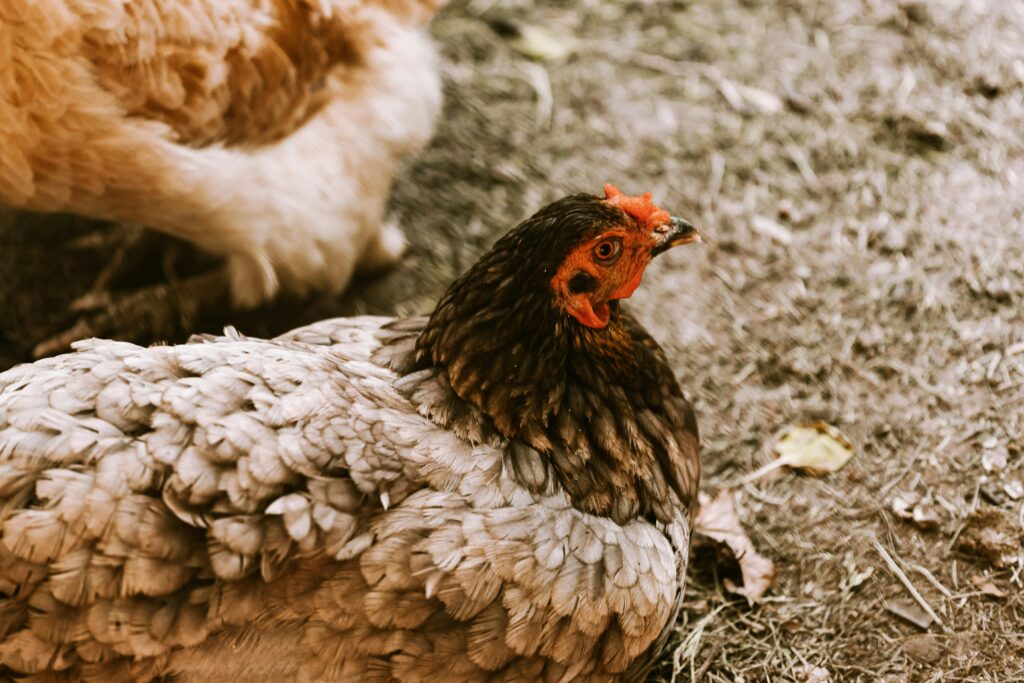
Photo by Photo By: Kaboompics.com
Egg Production and Its Impact on Chicken Lifespan
Hens bred to lay a high volume of eggs often face reproductive health issues, such as egg binding, prolapse, or reproductive tumors, which can drastically reduce life expectancy. Selective breeding for maximum output has inadvertently reduced the natural lifespan of these birds.
Life Expectancy of Common Chicken Breeds
Let’s take a look at how long popular breeds typically live:
| Chicken Breed | Egg Production | Average Lifespan |
| Australorp | High | 6–10 years |
| Plymouth Rock | Medium | 8–10 years |
| ISA Brown | Very High | 2–4 years |
| Sussex | Medium | 6–8 years |
| Bantam | Low | 8–12 years |
How to Extend the Life of Your Backyard Chickens
You can actively improve your chickens’ chances at living a long and healthy life. Here’s how:
Clean Environment and Proper Coop Setup
- Provide adequate ventilation
- Use deep-litter method or clean weekly
- Avoid moldy bedding or stagnant water
Predator Protection
Install hardware cloth (not chicken wire) and bury fencing underground to ward off raccoons, hawks, and foxes. Nighttime predator attacks are a leading cause of premature death in backyard flocks.
Social and Behavioral Health
Chickens are social animals. Isolation or bullying can lead to stress-related illness. Ensure they have space to roam, dust bathe, and socialize.
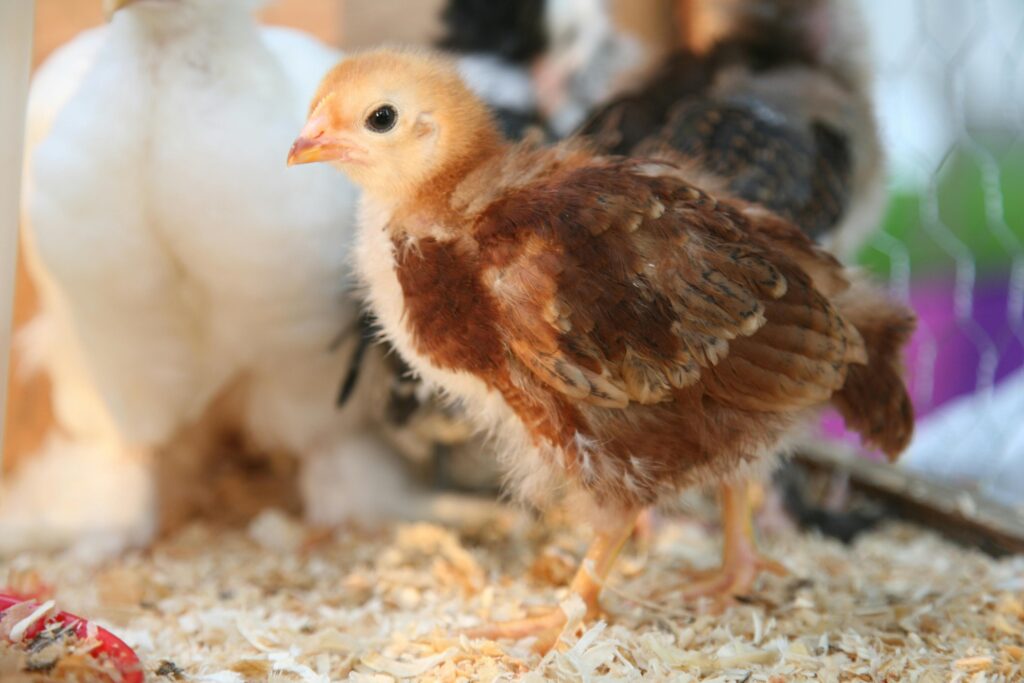
Photo by Brenda Timmerman
Do Chickens Die Naturally or Need to Be Culled?
In commercial settings, culling is common after peak productivity ends. In contrast, hobbyists often allow chickens to live out their natural lives. A healthy chicken may die of old age—often showing signs of slowing down, molting, or arthritis before passing.
9 Surprising Facts About Older Chickens
- Chickens can go through “henopause” and stop laying.
- Older hens become calmer and friendlier.
- Roosters can still remain dominant, even if infertile.
- Chickens can live toothless—gizzard health is key!
- Feather regrowth slows in older birds.
- Arthritis and vision problems are common.
- They still enjoy treats and dust baths!
- Older chickens may serve as mentors to younger flocks.
- Some chickens have lived to be 15+ years old!
FAQs About Chicken Lifespan
1. How long do chickens live in backyard flocks?
With proper care, most backyard chickens live 5–10 years, depending on the breed and environment.
2. Do egg-laying chickens live shorter lives?
Yes, high-production breeds like ISA Browns often have shorter lifespans due to reproductive stress.
3. Can a chicken die of old age naturally?
Absolutely. Chickens can pass peacefully in their sleep, especially if not subjected to commercial culling practices.
4. What’s the oldest recorded chicken?
A hen named Matilda lived to be 16 years old—the oldest known verified chicken lifespan!
5. Do roosters live longer than hens?
Not typically. Roosters face more territorial stress and can suffer injuries from dominance battles.
6. Can older chickens still be useful?
Yes! While they may not lay eggs, they can deter pests, mentor younger birds, and add social harmony to the flock.
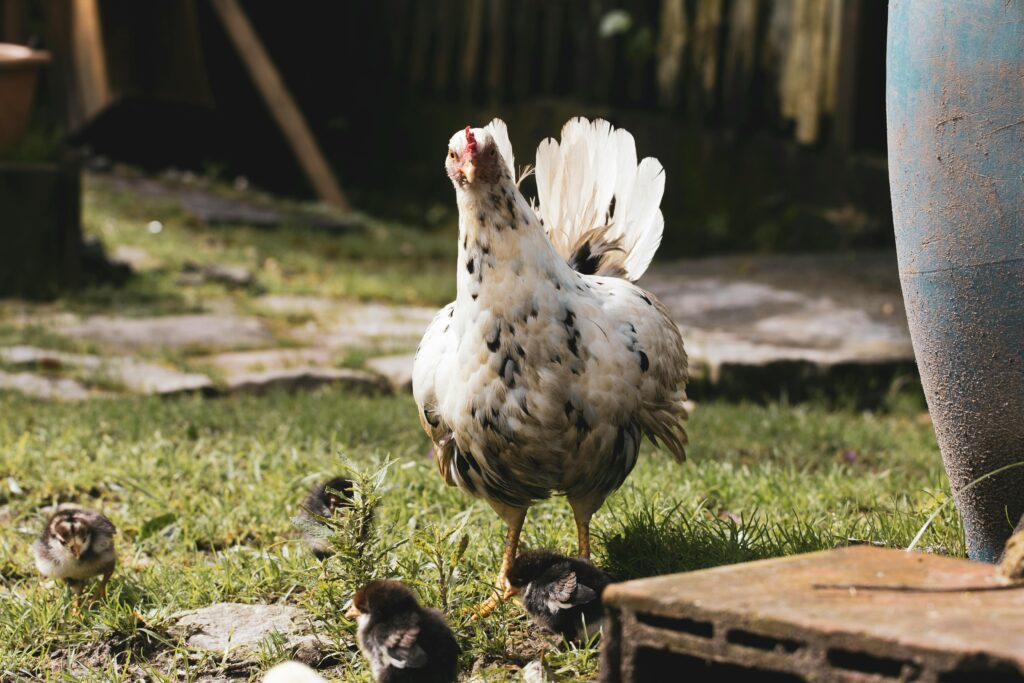
Photo by Marcelo Moreira
Conclusion
The life span of a chicken is influenced by everything from genetics to daily care. While commercial practices limit many chickens to just a few years, backyard chicken owners can give their birds a full, healthy life through attention, clean environments, and balanced nutrition. Remember, each bird is unique—some may surprise you with their resilience and longevity!
